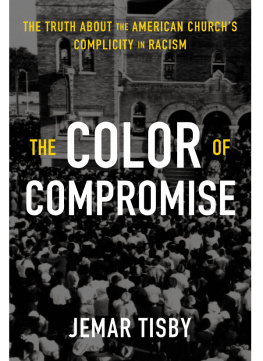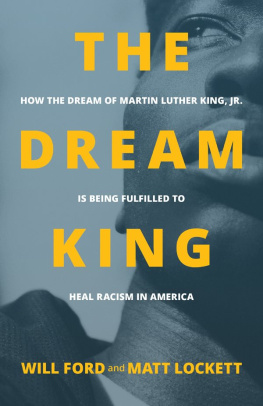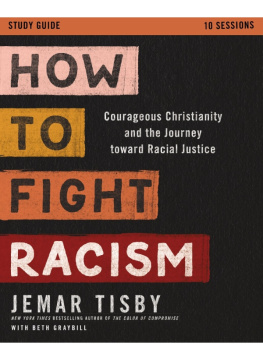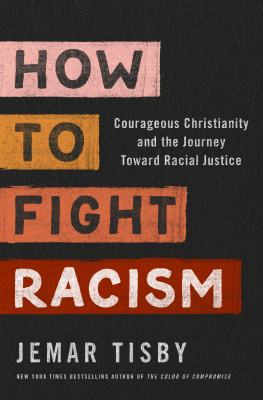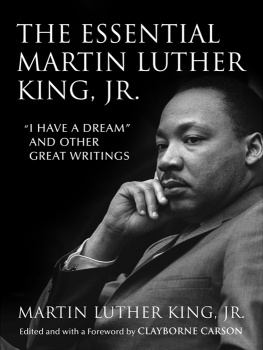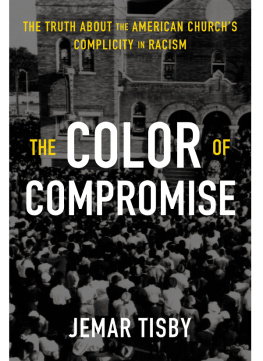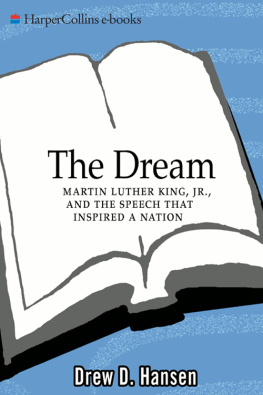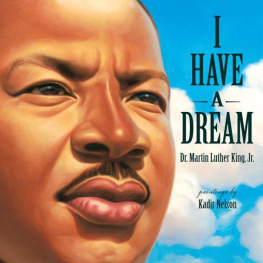In giving us a history of America and the Protestant church, Jemar Tisby has given us a survey of ourselvesthe racial meanings and stratagems that define our negotiations with one another. He points courageously toward the open sore of racism, not with the resigned pessimism of the defeated but with the resilient hope of Christian faith. The reader will have their minds and hearts pricked as they consider just how complicit the church has been in Americas original sin and how weak a word complicit is for describing the actions and inactions of those who claim the name of Christ!
THABITI ANYABWILE, pastor, Anacostia River Church
With clinical precision, Jemar Tisby unpacks the tragic connection between the American church and the countless historic iterations of American racism. Readers are served well by Jemars refusal to minimize the horror of this history or sanitize the churchs hands from its complicity. For this reason and many others, The Color of Compromise is an appropriately discomforting volume for such a time as this. May it be referenced and heeded as a prophetic warning for decades to come.
TYLER BURNS, vice president, The Witness
If you want to understand why we remain mired in racial unrighteousness, you need to read this book. Its pages radiate not just historical but also moral insight, as Tisby shines a light on to the dark places of American church history. The Color of Compromise tells the truthand only the truth will set us free.
HEATH W. CARTER, associate professor of history, Valparaiso University, author, Union Made
The Color of Compromise is essential reading for American Christians. By telling the brutal history of white Christians deliberate complicity in racial oppression, Jemar Tisby confronts the church with its own past. But his is not simply a story of condemnation. If racism can be made, it can be unmade, he reminds us. There can be no deep disappointment where there is not deep love, Martin Luther King Jr. once wrote. Tisbys book is a labor of love and, ultimately, a work of hope.
KRISTIN DU MEZ, professor of history and gender studies, Calvin College
Each individual and society is a compilation of what has come before them, whether they own this notion or not. Tisbys thoughtful work reminds us that you can run from, deny, or remix it, but history will find you out. The American churchs history of wanting to hold holiness in one hand and racial stratification in the other has seeded a deeply corrupted tree. The book causes us to examine the implications of the historical trajectory of our theological influences. Yet this book, with the same intensity that it offers historical truth, provides grace. If race can be constructed, racism can be deconstructed. In Christs name, it must be!
CHRISTINA EDMONDSON, dean for intercultural student development, Calvin College
Christianity in the United States has had problems for centuries as it concerns racial injustice, and most American Christians need what can only be described as remedial education when it comes to understanding the abusive racist history of our faith tradition. In The Color of Compromise Jemar Tisby courageously challenges some of our long held collective assumptions and whitewashed accounts of rationalized racism for the church in America. With a thoroughly researched and detailed examination of archival documents and literary sources, he compels readers to focus on hard truths, addresses the realities of American Christianitys past, and does so in a well-reasoned and lovingly direct writing style. Upon reading this book, one will come away having to reconsider how individuals who proudly boast of a Christian way of life in America continue to do so at the expense of others. As a historian and a Christian, Tisby presents truth with accuracy but also with much love and humility. If it is true that those who fail to learn from history are doomed to repeat it, then this book is a timely must-read for any Christian seeking justice and mercy, as we learn how problems in American Christianitys past could lead to solutions in our future.
ALEXANDER JUN, professor of higher education, Azusa Pacific University, author, White Out and White Jesus
Reconciliation doesnt happen without truth telling. Jemar takes us on a historical journey laying out the racial complicity of the church. Its difficult to understand the complexities of the history of racial oppression in America; one must begin to identify the intentional and unintentional blind spots many have. Jemar calls the church to face its tragic history in an effort to build a new future and to save it from repeating past mistakes. The foundation of reconciliation begins with truth. Tisby encourages us to become courageous Christians who face our past with lament, hope, and humility. History is imperative to understanding the present. The Color of Comprise gives us an aerial view of our past with hopes of a Christian awakening. This is a must-read for all Christians who have hopes of seeing reconciliation.
LATASHA MORRISON, founder and president, Be the Bridge
With the incision of a prophet, the rigor of a professor, and the heart of a pastor, Jemar Tisby offers a defining examination of the history of race and the church in America. Comprehensive in its scope of American history, Tisbys data provides the full truth and not a sanitized version that most American Christians have embraced. Read this book. Share this book. Teach this book. The church in America will be better for it.
SOONG-CHAN RAH, Milton B. Engebretson Professor of Church Growth and Evangelism, North Park Theological Seminary, author, The Next Evangelicalism and Prophetic Lament
In The Color of Compromise, Tisby reveals the role that racism has played in the American church and how that has manifested in policy making. Those following the relationship between white evangelicals and President Trump need to know that this union was a long time comingeven before the rise of the Moral Majority, led in part by the late Jerry Falwell, father of one of Trumps most vocal evangelical supporters, Jerry Falwell Jr. Tisbys book gives the historical context that is often missing from the conversation about how so many black and white Christians can be described as theologically conservative but vote so differently on Election Day. Compromise helps the reader understand that Martin Luther King Jr.s assessmentthat Sunday morning is the most racially divided hour in Americarings true today and manifests in the voting booths when Christians express their deeply held convictions.
EUGENE SCOTT, reporter covering identity politics for The Fix for The Washington Post
Some American evangelical Christians are often confused and sometimes frustrated by all the talk surrounding white supremacy and American Christianity. Some think that racism and its deleterious intergenerational, personal, psychological, social, institutional, and systemic effects are of the past and too often exaggerated in the present or that in a certain way American Christianity was somehow immune to this national spiritual and moral pathology. In The Color of Compromise, Jemar Tisby has provided an account that reminds some of us and informs others of the sad demonstrably historical fact that the American church intentionally perpetuated racial injustice socially and politically while attempting to undergird all of this theologically. The claim itself will no doubt make some uncomfortable. We must nevertheless come to grips with these realities. Others may even become defensive, yet this response must be resisted. For those who care about the collective witness of the American church, it is necessary that readers journey with Tisby through this treacherous landscape of American church history. This sordid history should not be hidden, downplayed, or explained away. It must be confronted. There cannot be a way forward without a profound truth telling. This is exactly what

